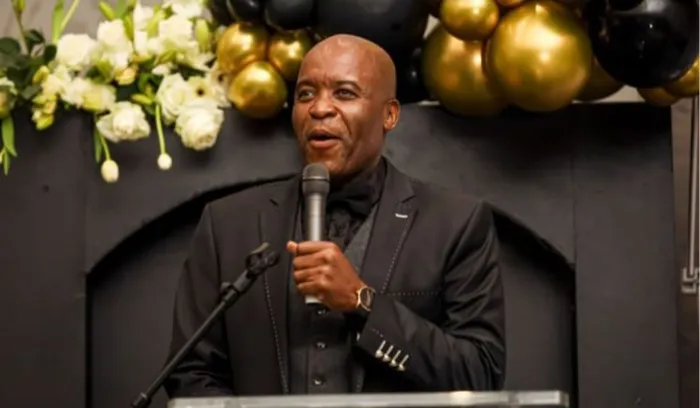Tshwane budget passed, hailed as a 'turning point' for the City's finances and service delivery
'MOVING FORWARD WITH PURPOSE'

City of Tshwane Deputy Mayor and MMC for Finance Eugene Modise who has described the passing of the City's 2025/26 budget on Friday as a turning point.
Image: Supplied
The passing of Tshwane’s first fully-funded budget in years has been hailed as a “turning point” for the City’s finances and service delivery capabilities.
The Deputy Executive Mayor and MMC for Finance, Cllr Eugene Modise, said that the multiparty coalition governing the City was pleased about this development. He said it marked “a turning point" for Tshwane’s financial governance and service delivery capabilities and sent “a clear message that Tshwane is moving forward with purpose, discipline, and unity in vision”.
This marks the conclusion of the budgeting process, which has been open for public participation in the last couple of months ahead of the commencement of the new financial year on July 1.
However, the Democratic Alliance (DA) in the metro rejected the budget as a “farce” that was “nothing but a protection of ANC patronage” that used residents as “cash cows”.
“The ANC in Tshwane has ignored opposition voices, and included another punitive tax on residents. The plan is to tax every single resident who cannot afford to make use of the City’s own rubbish collectors, at R500 per month, by forcing them to pay R200 per month in the form of a “City Cleansing Levy”. Moreover, private waste collectors already pay a fee to utilise the City’s dumping grounds – those using private collectors, will now pay double, while those that cannot afford the City’s rates will be penalised for being poor,” said the party’s spokesperson on finance, Cllr Jacqui Uys.
She said this “flawed budget” was an exercise in “protecting patronage networks”, citing the R20 million allocated to pay for an advisor to facilitate getting the Rooiwal and Pretoria West Power Stations operated privately.
Uys also decried the fact that this budget almost doubled the Water and Sanitation Department’s water tanker allocation, arguing that the real intent was not to deal with the crisis in places like Ikageng but to “keep Tshwane reliant on the water tanker mafia”.
However, the budget was supported by the multiparty coalition with some of its members defending and praising it, including the much-talked-about cleansing levy.
During her budget debate speech on Friday, the Good party’s Cllr Sarah Mabotsa defended the cleansing levy, arguing that Tshwane had taken a “far more sensible approach” than other cities in charging for cleaning costs. She said those residents already paying for refuse removal would not be charged any new levy.
“Let me remind Council that in Cape Town, the DA has proposed a R2.4 billion cleansing levy for that city. Those billions will be raised from every household, irrespective of whether they are already paying for refuse removal,” said Mabotsa who is the MMC for Economic Development and Spatial Planning.
Supporting the 2025/26 budget, Mabotsa said it “very clearly demonstrates our government’s commitment to the priorities which we promised the residents of Tshwane we would address”.
With regards to finances, she said last year around this time the City had a R2.8 billion deficit, but now it was in the black; it has paid off the more than R1.2 billion historic debt to Eskom; international financial agencies are “looking more positively” at the City; and the Auditor-General is “sounding increasingly pleased" with Tshwane’s “more responsible approach” to financial management.
During the passing of the budget, Modise said the governing coalition’s collective efforts were geared towards creating a “responsive and responsible government with the needs of our residents at its centre”.
He listed the budget’s priority “fundamentals” as dealing with electricity and water infrastructure issues, informal settlement upgrades and urban renewal, local economic development and job creation, “supporting” clean, safe and reliable public services, ensuring long-term financial sustainability, and building internal capacity by purchasing water tankers and refuse trucks.
Some highlights of this budget include:
- R1.4 billion being spent on upgrades to water and electricity infrastructure;
- R5.3 billion allocated to the Emergency Services and TMPD to improve safety and security;
- R2.9 billion worth of social security packages for “the most vulnerable of residents”;
- R304 million set aside to improve the customer experience of the City;
- R522 million being spent on the A Re Yeng public transport network subsidised by the City; and
- R565 million on the protection of City assets left vulnerable to vandalism and sabotage by previous administrations.
Related Topics:
